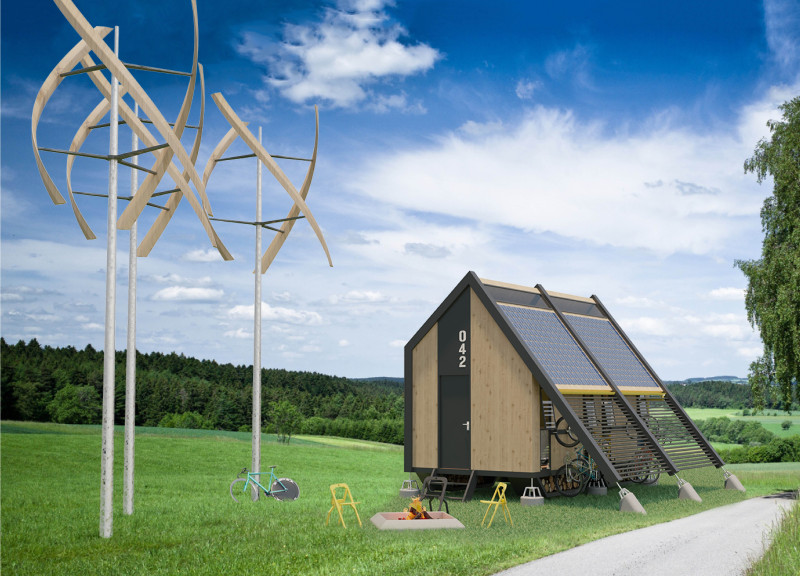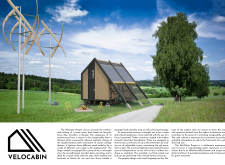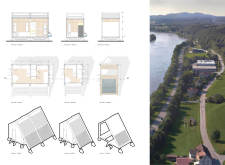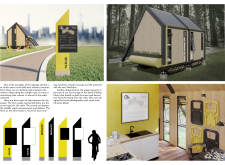5 key facts about this project
The Velocabin Project presents a thoughtful solution for long-distance bike travelers in Europe. Located in diverse natural settings, it consists of three modular units designed to offer temporary shelter. Each module is tailored to meet specific needs, balancing comfort with functionality. The design features a double-slanted roof, which provides a distinctive character while blending in with the surrounding landscape.
Design Concept
Three different modules serve distinct purposes. The largest module accommodates up to four persons for overnight stays, while the medium-sized module supplies basic amenities for quick stops. The smallest module functions as a simple shelter from sun and rain. This flexible setup allows travelers to choose the best accommodation for their needs, fostering social interaction among users who share the space.
Material and Construction
The project employs a Cross Laminated Timber (CLT) structure, which contributes to sustainability and efficiency. This lightweight material simplifies transportation and assembly at various locations. Shallow concrete shoe base-foundations stabilize the modules while reducing impact on the soil. Adjustable screws are used to level the foundations, ensuring the buildings remain steady on uneven ground.
Sustainability Features
Sustainability is a core principle in the design. Solar panels and wind generators are integrated, helping to reduce energy consumption. A rainwater harvesting system captures and stores water, emphasizing the importance of resource conservation. These features reflect the commitment to environmentally friendly practices and enhance the overall experience for users.
Functional Elements
Inside the modules, practical details contribute to user experience. The Désile Folding Chairs serve both as seating and decor, making efficient use of limited interior space. Communal bonfire areas encourage socializing among guests, creating a welcoming atmosphere. Firewood storage complements these spaces, ensuring that visitors have everything needed for outdoor enjoyment. This design supports connection and comfort, enhancing the overall experience for travelers seeking rest in nature.






















































